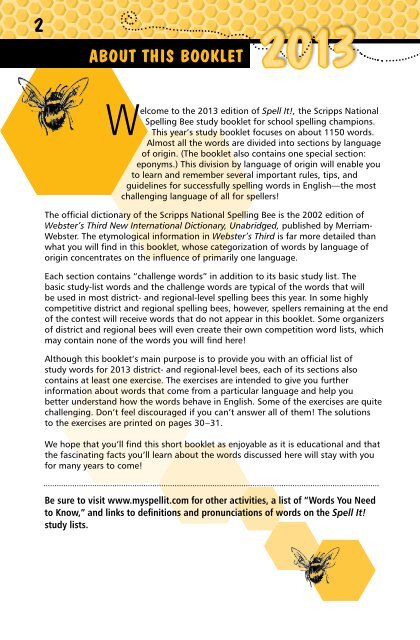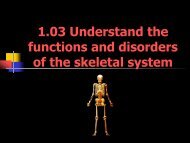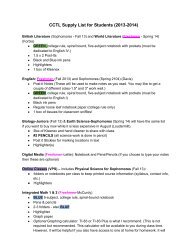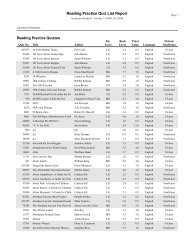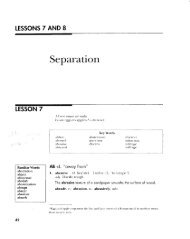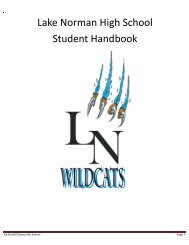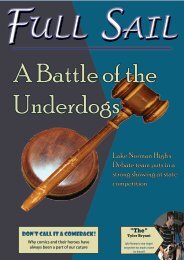Spell It!
Spell It!
Spell It!
Create successful ePaper yourself
Turn your PDF publications into a flip-book with our unique Google optimized e-Paper software.
2<br />
About thIS bookLet<br />
2013<br />
Welcome to the 2013 edition of <strong>Spell</strong> <strong>It</strong>!, the Scripps National<br />
<strong>Spell</strong>ing Bee study booklet for school spelling champions.<br />
This year’s study booklet focuses on about 1150 words.<br />
Almost all the words are divided into sections by language<br />
of origin. (The booklet also contains one special section:<br />
eponyms.) This division by language of origin will enable you<br />
to learn and remember several important rules, tips, and<br />
guidelines for successfully spelling words in English—the most<br />
challenging language of all for spellers!<br />
The official dictionary of the Scripps National <strong>Spell</strong>ing Bee is the 2002 edition of<br />
Webster’s Third New International Dictionary, Unabridged, published by Merriam-<br />
Webster. The etymological information in Webster’s Third is far more detailed than<br />
what you will find in this booklet, whose categorization of words by language of<br />
origin concentrates on the influence of primarily one language.<br />
Each section contains “challenge words” in addition to its basic study list. The<br />
basic study-list words and the challenge words are typical of the words that will<br />
be used in most district- and regional-level spelling bees this year. In some highly<br />
competitive district and regional spelling bees, however, spellers remaining at the end<br />
of the contest will receive words that do not appear in this booklet. Some organizers<br />
of district and regional bees will even create their own competition word lists, which<br />
may contain none of the words you will find here!<br />
Although this booklet’s main purpose is to provide you with an official list of<br />
study words for 2013 district- and regional-level bees, each of its sections also<br />
contains at least one exercise. The exercises are intended to give you further<br />
information about words that come from a particular language and help you<br />
better understand how the words behave in English. Some of the exercises are quite<br />
challenging. Don’t feel discouraged if you can’t answer all of them! The solutions<br />
to the exercises are printed on pages 30–31.<br />
We hope that you’ll find this short booklet as enjoyable as it is educational and that<br />
the fascinating facts you’ll learn about the words discussed here will stay with you<br />
for many years to come!<br />
Be sure to visit www.myspellit.com for other activities, a list of “Words You Need<br />
to Know,” and links to definitions and pronunciations of words on the <strong>Spell</strong> <strong>It</strong>!<br />
study lists.<br />
No language has been more influential in the development of<br />
advanced English vocabulary than Latin. There are two<br />
reasons for this. First, when the French conquered<br />
England in 1066, their language was very similar to Latin,<br />
and French remained England’s official language for<br />
200 years. Second, Latin was the language of culture,<br />
religion, education, and science in the Western world<br />
from the Middle Ages until relatively recently. <strong>It</strong> is still<br />
used today to name newly discovered species of plants and<br />
animals and to form some compound words in various scientific and<br />
technological fields.<br />
inane<br />
relevant<br />
impetuous<br />
ambivalent<br />
dejected<br />
postmortem<br />
incriminate<br />
access<br />
plausible<br />
interrupt 1<br />
alliteration<br />
refugee<br />
amicable<br />
lucid 2<br />
percolate<br />
meticulous<br />
fastidious<br />
trajectory<br />
animosity<br />
implement<br />
ambiguity<br />
curriculum<br />
omnivorous<br />
bellicose<br />
electoral<br />
crescent 3<br />
obsequious<br />
transect<br />
precipice<br />
susceptible<br />
condolences 4<br />
benefactor<br />
candidate<br />
bugle<br />
formidable<br />
canary<br />
subterfuge<br />
abdicate<br />
lunatic<br />
carnivore 5<br />
gregarious<br />
ostentatious<br />
prosaic 6<br />
herbivore<br />
prodigal<br />
magnanimous<br />
benevolent<br />
mercurial<br />
simile<br />
jovial<br />
ridiculous<br />
innate<br />
obstinate<br />
discern<br />
WordS from LAtIn<br />
mediocre<br />
insidious<br />
rupture<br />
precipitate<br />
erudite<br />
colloquial<br />
intractable<br />
exuberant 7<br />
ingenious<br />
retrospective<br />
ominous<br />
vulnerable<br />
omnipotent<br />
consensus<br />
discipline<br />
alleviate<br />
spectrum<br />
prescription<br />
capitulation<br />
incredulous<br />
affinity<br />
necessary<br />
adjacent<br />
dissect<br />
conjecture<br />
imperative<br />
predicate<br />
corporal<br />
patina<br />
Capricorn<br />
participant<br />
library<br />
cognition<br />
primal<br />
filament<br />
unity<br />
ventilate<br />
aquatic<br />
igneous<br />
reptile<br />
providence<br />
message<br />
foliate<br />
nasal<br />
opera<br />
renovate<br />
credentials<br />
temporal<br />
canine<br />
measure<br />
credible<br />
study words<br />
continued on<br />
page 4<br />
(For footnotes, see <strong>Spell</strong>ing Tips, pages 4–5.)<br />
3


